
[xyz-ihs snippet="NavigationLinksBlock-Common"]
Your Song
by Elton John
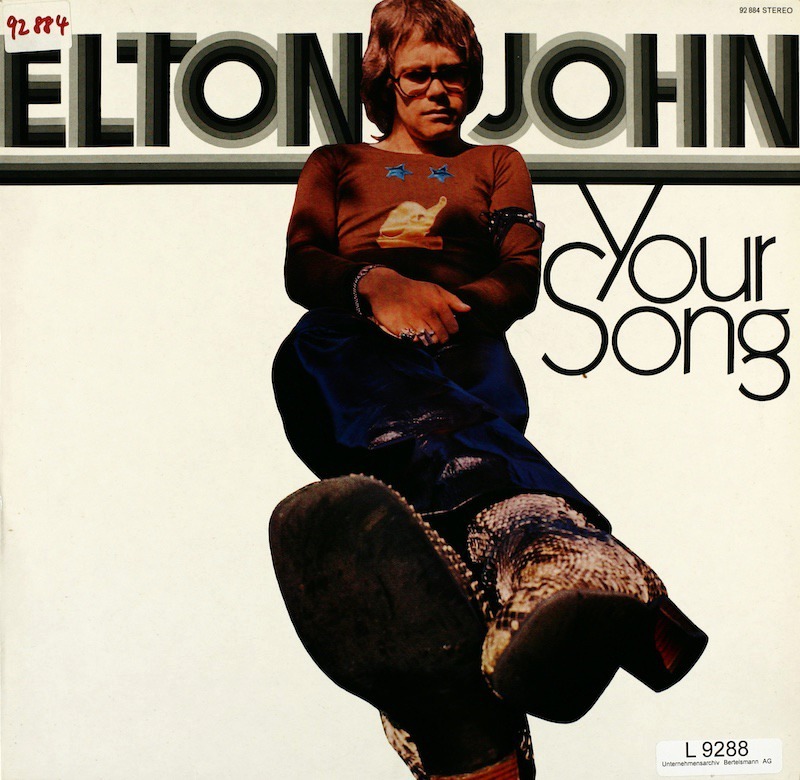
" Your Song " is a song written by English musician Elton John and songwriter Bernie Taupin, and performed by John. It was John's first international Top 10 chart single. "Your Song" was first released by American rock band Three Dog Night in March 1970 as an album track on It Ain't Easy. John was an opening act for the band at the time and allowed them to record it. They did not release it as a single as they wanted to let John, then an upcoming artist, have a go with it. John's version was recorded at Trident Studios in London in January 1970 and appeared in April as the first cut on his self-titled second studio album.
[video width="640" height="360" mp4="https://www.easypianoonline.com/wp-content/uploads/2022/04/YourSong.mp4"]
Lyrics
Your Song
It's a little bit funny, this feeling inside
I'm not one of those who can easily hide
I don't have much money, but, boy, if I did
I'd buy a big house where we both could live
If I was a sculptor, heh, but then again, no
Or a man who makes potions in a traveling show
I know it's not much, but it's the best I can do
My gift is my song, and this one's for you
[Chorus]
And you can tell everybody this is your song
It may be quite simple, but now that it's done
I hope you don't mind, I hope you don't mind
That I put down in the words
How wonderful life is while you're in the world
[Verse 2]
I sat on the roof and kicked off the moss
Well, a few of the verses, well, they've got me quite cross
But the sun's been quite kind while I wrote this song
It's for people like you that keep it turned on
So excuse me forgetting, but these things I do
You see, I've forgotten if they're green or they're blue
Anyway, the thing is, what I really mean
Yours are the sweetest eyes I've ever seen
[Chorus]
And you can tell everybody this is your song
It may be quite simple, but now that it's done
I hope you don't mind, I hope you don't mind
That I put down in the words
How wonderful life is while you're in the world
[Outro]
I hope you don't mind, I hope you don't mind
That I put down in the words
How wonderful life is while you're in the world
Songwriters: Elton John

[xyz-ihs snippet="NavigationLinksBlock-Common"]
Il Postino (The Postman)
by Luis Bacalov
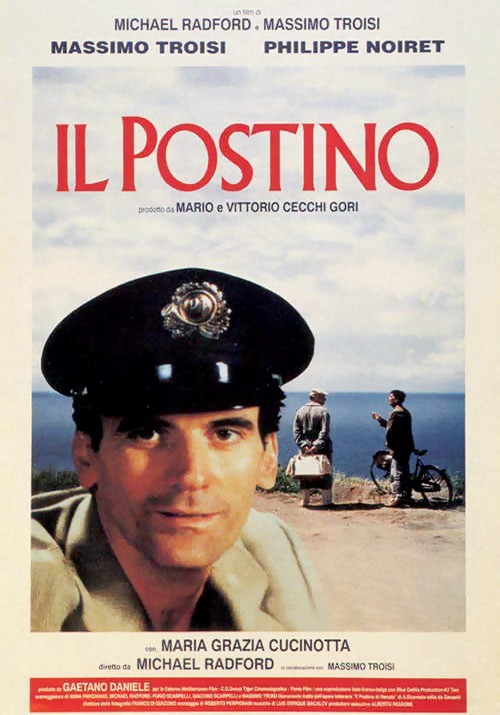
" Il Postino "is the soundtrack to a 1994 comedy-drama film Il Postino (The Postman). Composer Luis Bacalov won the Academy Award for Best Original Dramatic Score, and the film was nominated for Best Picture, Best Director, Best Actor, and Best Screenplay Based on Material Previously Produced or Published. The film tells a fictional story in which the real life Chilean poet Pablo Neruda forms a friendship with a simple Procida postman (Troisi) who learns to love poetry.
[video width="640" height="360" mp4="https://www.easypianoonline.com/wp-content/uploads/2022/04/IlPostino.mp4"]

[xyz-ihs snippet="NavigationLinksBlock-Common"]
The Man from Snowy River
by Bruce Rowland
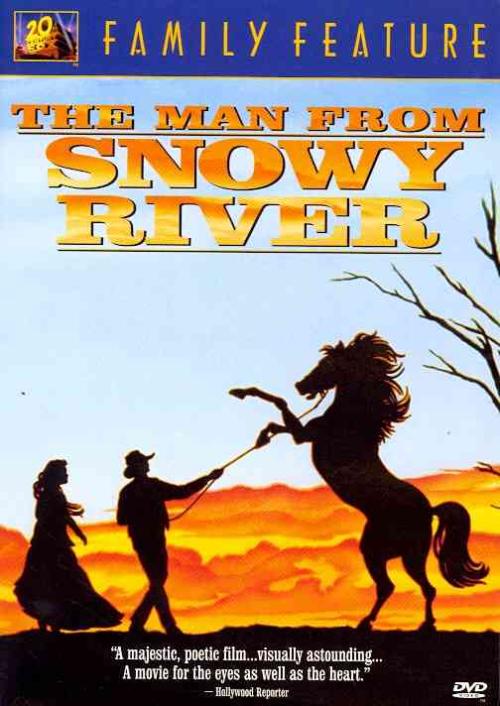
" The Man from Snowy River " (Main Title Theme) is the original motion picture soundtrack from the 1982 film The Man from Snowy River. Bruce Rowland composed the music for the film, and also conducted the orchestra during the recording of the album. The sound engineer for the recording was Roger Savage. Later, Bruce Rowland composed a special Olympics version of the "Main Title" theme for the 2000 Summer Olympics opening ceremony. Also, both the "Main Title" and "Jessica's Theme", from the film's soundtrack were reprised as part of the cast album soundtrack of the 2002 musical The Man from Snowy River: Arena Spectacular. A pastiche of the "Main Title" appeared in the post-credits scene of Napoleon Dynamite.
[video width="640" height="360" mp4="https://www.easypianoonline.com/wp-content/uploads/2022/03/TheManFromSnowyRiver.mp4"]

[xyz-ihs snippet="NavigationLinksBlock-Common"]
La Campanella
by Franz Liszt - Niccolo Paganini
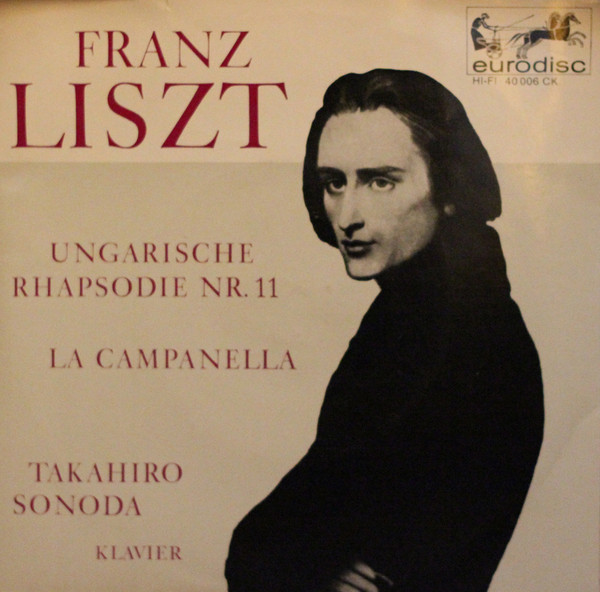
" La Campanella "(Italian for "The little bell") is the nickname given to the third of Franz Liszt's six Grandes études de Paganini, S. 141 (1851). It is in the key of G-sharp minor. This piece is a revision of an earlier version from 1838, the Études d'exécution transcendente d'après Paganini, S. 140. Its melody comes from the final movement of Niccolò Paganini's Violin Concerto No. 2 in B minor, where the tune was reinforced metaphorically by a 'little handbell'. The étude is famous for being one of the most difficult pieces ever written for piano.
[video width="640" height="360" mp4="https://www.easypianoonline.com/wp-content/uploads/2021/06/LaCampanella.mp4"]

[xyz-ihs snippet="NavigationLinksBlock-Common"]
Song Of The Volga Boatmen
(Russian Traditional)
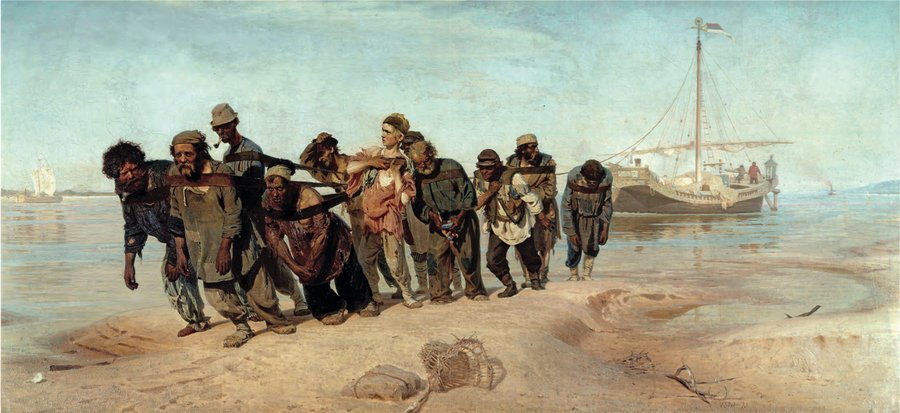
" Song Of The Volga Boatmen " (known in Russian as Эй, ухнем! [Ey, ukhnem!, "yo, heave-ho!"], after the refrain) is a well-known traditional Russian song collected by Mily Balakirev, and published in his book of folk songs in 1866. It was sung by burlaks, or barge-haulers, on the Volga River. Balakirev published it with only one verse (the first). The other two verses were added at a later date. Ilya Repin's famous painting Barge Haulers on the Volga depicts such burlaks in Tsarist Russia toiling along the Volga. The song was popularized by Feodor Chaliapin, and has been a favorite concert piece of bass singers ever since.
[video width="640" height="360" mp4="https://www.easypianoonline.com/wp-content/uploads/2021/05/SongOfTheVolgaBoatmen.mp4"]
Lyrics
Song Of The Volga Boatmen
(English - Translation)
Yo, heave ho!
Once more, once again, still once more
Yo, heave ho!
Yo, heave ho!
Once more, once again, still once more
Now we fell the stout birch tree,
Now we pull hard: one, two, three.
Ay-da, da, ay-da!
Ay-da, da, ay-da!
Now we pull hard: one, two, three.
Now we pull hard: one, two, three.
Yo, heave ho!
Yo, heave ho!
Once more, once again, still once more
As we walk along the shore,
To the sun we sing our song.
Ay-da, da, ay-da!
Ay-da, da, ay-da!
To the sun we sing our song.
Hey, hey, let's heave a-long the way
To the sun we sing our song
Yo, heave ho!
Yo, heave ho!
Once more, once again, still once more
Oh, you, Volga, mother river,
Mighty stream so deep and wide.
Ay-da, da, ay-da!
Ay-da, da, ay-da!
Volga, Volga, mother river.
Yo, heave ho!
Yo, heave ho!
Once more, once again, still once more
Yo, heave ho!
Yo, heave ho!
Эй, ухнем!
(Russian - Original)
Эй, ухнем!
Эй, ухнем!
Ещё разик, ещё да раз!
Эй, ухнем!
Эй, ухнем!
Ещё разик, ещё да раз!
Разовьём мы берёзу,
Разовьём мы кудряву!
Ай-да, да ай-да,
Aй-да, да ай-да,
Разовьём мы кудряву.
Разовьём мы кудряву.
Эй, ухнем!
Эй, ухнем!
Ещё разик, ещё да раз!
Мы по бережку идём,
Песню солнышку поём.
Ай-да, да ай-да,
Aй-да, да ай-да,
Песню солнышку поём.
Эй, эй, тяни канат сильней!
Песню солнышку поём.
Эй, ухнем!
Эй, ухнем!
Ещё разик, ещё да раз!
Эх ты, Волга, мать-река,
Широка и глубока,
Ай-да, да ай-да,
Aй-да, да ай-да,
Волга, Волга, мать-река
Эй, ухнем!
Эй, ухнем!
Ещё разик, ещё да раз!
Эй, ухнем!
Эй, ухнем!
Songwriters: Russian Traditional

[xyz-ihs snippet="NavigationLinksBlock-Common"]
Katyusha
by Matvey Blanter
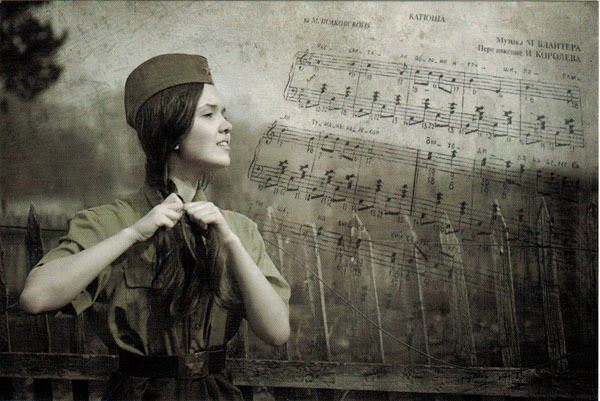
" Katyusha " is a Soviet folk-based song and military march. It was composed by Matvey Blanter in 1938, the lyrics are written by Mikhail Isakovsky. Katyusha gained fame during World War II as a patriotic song, inspiring the population to serve and defend their land in the war effort. In Russia, the song was still popular as of 1995. The song is the source of the nickname of the BM-8, BM-13, and BM-31 "Katyusha" rocket launchers that were used by the Red Army in World War II.
The song is about a Russian woman called Katyusha. Standing on a steep riverbank, she sends her song to her beloved, a soldier serving far away. The theme of the song is that the soldier will protect the Motherland and its people while his grateful girl will keep and protect their love. Its lyrics became relevant during the Second World War, when many Soviet men left their wives and girlfriends to serve in World War II, known in Russia as The Great Patriotic War. Many of the men never returned home, with an estimated 8,668,400 Soviet military deaths.
[video width="640" height="360" mp4="https://www.easypianoonline.com/wp-content/uploads/2021/05/Katyusha.mp4"]
Lyrics
Katyusha
(English - Translation)
Mist on the river floating
On the bank Katyusha stepped out
On the high steep bank
Stepped out, started a song
About one grey steppe eagle
About her loved one
Whose letters she cherished
Oh song, maiden's song
Fly towards the clear sun
And to the warrior on a far away border
Bring Katyusha's greeting
May he remember this simple maiden
And hear her singing
May he save our motherland
And love, Katyusha will save
Катюша
(Russian – Original)
Расцветали яблони и груши,
Поплыли туманы над рекой;
Выходила на берег Катюша,
На высокий берег, на крутой.
Выходила, песню заводила
Про степного, сизого орла,
Про того, которого любила,
Про того, чьи письма берегла.
Ой, ты песня, песенка девичья,
Ты лети за ясным солнцем вслед,
И бойцу на дальнем пограничье
От Катюши передай привет.
Пусть он вспомнит девушку простую,
Пусть услышить, как она поет,
Пусть он землю бережет родную,
А любовь Катюша сбережет.
Расщветали яблони и груши,
Поплыли туманы над рекой;
Выходила на берег Катюша,
На высокий берег, на крутой
Songwriters: Matvey Blanter / Mikhail Isakovsky

[xyz-ihs snippet="NavigationLinksBlock-Common"]
Dream A Little Dream Of Me
by Wilbur Schwandt and Fabian Andre
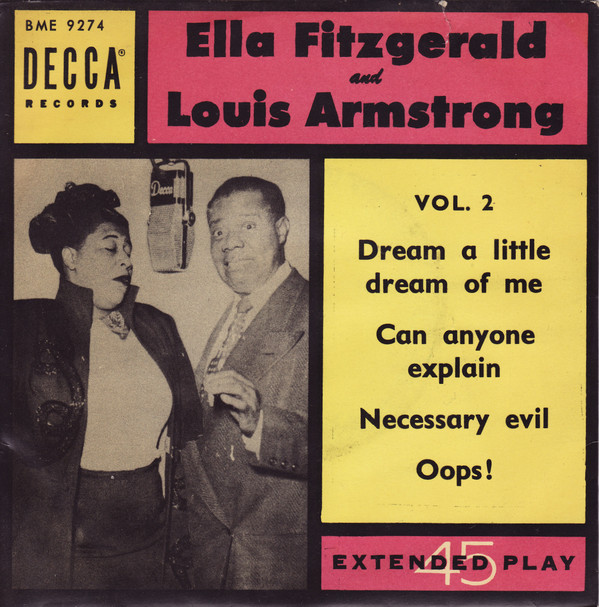
" Dream A Little Dream Of Me " is a 1931 song with music by Fabian Andre and Wilbur Schwandt and lyrics by Gus Kahn. It was first recorded in February 1931 by Ozzie Nelson and also by Wayne King and His Orchestra, with vocals by Ernie Birchill. A popular standard, it has seen more than 60 other versions recorded, with one of the highest chart ratings by The Mamas & The Papas in 1968 with Cass Elliot on lead vocals. Other traditional pop acts to record "Dream a Little Dream of Me" include Louis Armstrong, Ella Fitzgerald, Barbara Carroll, Nat King Cole, Doris Day, Joni James, and Dean Martin.
[video width="640" height="360" mp4="https://www.easypianoonline.com/wp-content/uploads/2021/05/DreamALittleDreamOfMe.mp4"]
Lyrics
Dream A Little Dream Of Me
Night breezes seem to whisper "I love you"
Birds singing in the sycamore tree
Dream a little dream of me
Say "Night-ie night" and kiss me
Just hold me tight and tell me you'll miss me
While I'm alone and blue as can be
Dream a little dream of me
Stars fading but I linger on, dear
Still craving your kiss
I'm longing to linger till dawn, dear
Just saying this
Sweet dreams till sunbeams find you
Sweet dreams that leave all worries behind you
But in your dreams whatever they be
Dream a little dream of me
Stars fading but I linger on, dear
Still craving your kiss
I'm longing to linger till dawn, dear
Just saying this
Sweet dreams till sunbeams find you
Sweet dreams that leave all worries behind you
But in your dreams whatever they be
Dream a little dream of me
Songwriters: Fabian Andre / Wilbur Schwandt / Gus Kahn

[xyz-ihs snippet="NavigationLinksBlock-Common"]
The Long And Winding Road
by The Beatles
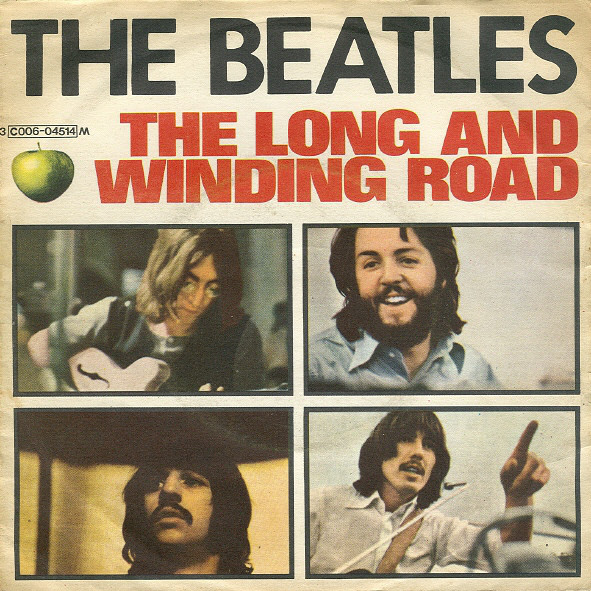
" The Long And Winding Road " is a song by the English rock band the Beatles from their 1970 album Let It Be. It was written by Paul McCartney and credited to Lennon–McCartney. When issued as a single in May 1970, a month after the Beatles' break-up, it became the group's 20th and last number-one hit on the Billboard Hot 100 chart in the United States.
The main recording of the song took place in January 1969 and featured a sparse musical arrangement. When preparing the tapes from these sessions for release in April 1970, producer Phil Spector added orchestral and choral overdubs. Spector's modifications angered McCartney to the point that when the latter made his case in the English High Court for the Beatles' disbandment, he cited the treatment of "The Long and Winding Road" as one of six reasons for doing so. New versions of the song with simpler instrumentation were subsequently released by McCartney and by the Beatles.
[video width="640" height="360" mp4="https://www.easypianoonline.com/wp-content/uploads/2021/05/TheLongAndWindingRoad.mp4"]
Lyrics
The Long And Winding Road
That leads to your door
Will never disappear
I've seen that road before
It always leads me here
Lead me to you door
The wild and windy night
That the rain washed away
Has left a pool of tears
Crying for the day
Why leave me standing here?
Let me know the way
Many times I've been alone
And many times I've cried
Anyway, you'll never know
The many ways I've tried
And still they lead me back
To the long winding road
You left me standing here
A long, long time ago
Don't leave me waiting here
Lead me to your door
But still they lead me back
To the long winding road
You left me standing here
A long, long time ago
Don't keep me waiting here
Lead me to your door
Yeah, yeah, yeah, yeah
Songwriters: John Lennon / Paul McCartney

[xyz-ihs snippet="NavigationLinksBlock-Common"]
Feather Theme
(Main Title)
by Alan Silvestri
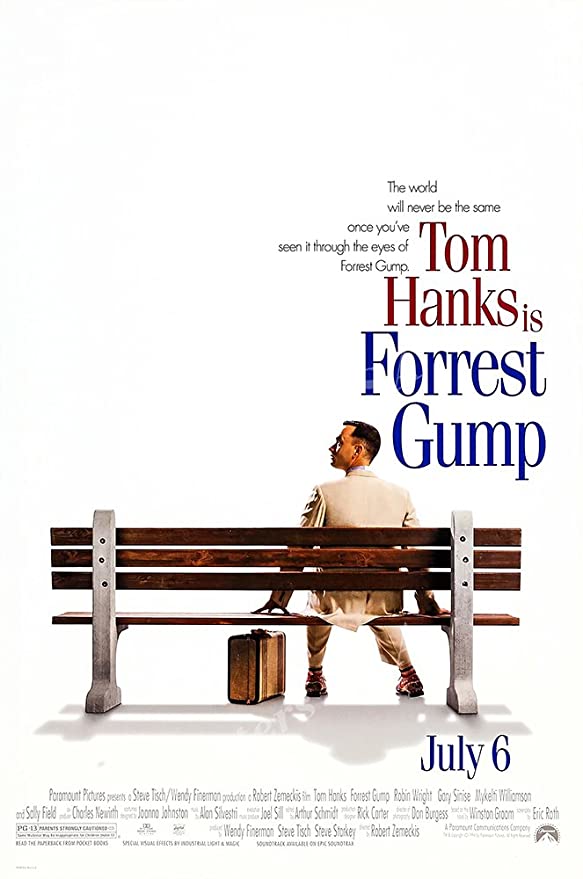
" Feather Theme " is the main title theme from the film Forrest Gump, written by Alan Silvestri. Forrest Gump is a 1994 American drama film directed by Robert Zemeckis and written by Eric Roth with comedic aspects. It is based on the 1986 novel of the same name by Winston Groom and stars Tom Hanks, Robin Wright, Gary Sinise, Mykelti Williamson and Sally Field. The story depicts several decades in the life of Forrest Gump (Hanks), a slow-witted but kind-hearted man from Alabama who witnesses and unwittingly influences several defining historical events in the 20th century United States. The film differs substantially from the novel.
[video width="640" height="360" mp4="https://www.easypianoonline.com/wp-content/uploads/2021/05/FeatherTheme.mp4"]

[xyz-ihs snippet="NavigationLinksBlock-Common"]
Shanghai Beach
(The Bund)
by Joseph Koo
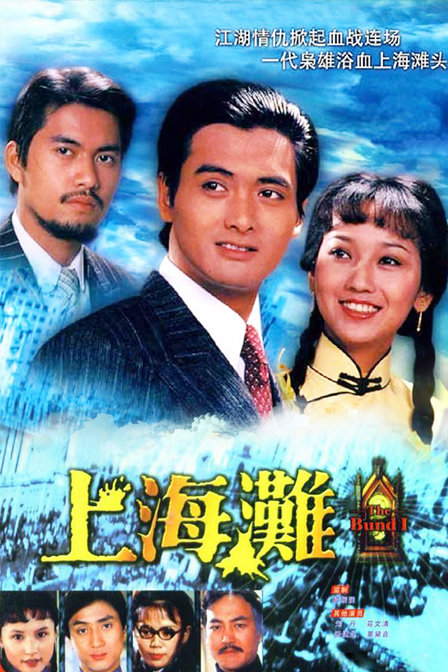
" Shanghai Beach " is the main theme song from the film series The Bund. The song was originally performed in Cantonese by Frances Yip. It was one of the early collaborations composed by Joseph Koo with the lyrics by Wong Jim. The song would also become one of the top 10 songs awarded in the 1980 RTHK Gold songs awards.
The Bund is a Hong Kong period drama television series first broadcast on TVB in 1980. It is praised as "The Godfather of the East" and spawned two sequels, two remakes, and a film adaptation. The theme song, which shares the same Chinese title as the series and was performed by Frances Yip, also became a memorable Cantopop hit. The 1996 film Shanghai Grand released some 16 years later also re-used the same song. This version was performed by Andy Lau.
[video width="640" height="360" mp4="https://www.easypianoonline.com/wp-content/uploads/2021/05/ShanghaiBeach.mp4"]
Lyrics
Shanghai Beach
(English - Translation)
It is a river stretching for thousands of miles,
flowing continuously for eternity.
Rinse away the stories of the world
The strong currents that mix together
Is it happiness or suffering?
It's tough to tell the difference between sadness and
suffering in the tides.
Success and defeat
It's difficult to see in the water
Love you or hate you
Ask you if you know
Like great blissfulness, when it flows, it will not return.
Flows through many banks of the seashore
Still cannot cease this fray
Both happiness and sorrow
Unable to distinguish between the two
Still hoping to conquer this crashing wave
My heart is ready for these ups and downs.
Love you or hate you
Ask you if you know
Like great blissfulness, when it flows, it will not return.
Flows through many banks of the seashore
Still cannot cease this fray
Both happiness and sorrow
Unable to distinguish between the two
Still hoping to conquer this crashing wave
My heart is ready for these ups and downs
Shanghai Beach
(Cantonese - Original)
上海灘
浪奔 浪流
萬里滔滔江水永不休
淘盡了 世間事
混作滔滔一片潮流
是喜 是愁
浪裡分不清歡笑悲憂
成功 失敗
浪裡看不出有未有
愛你恨你
問君知否
似大江一發不收
轉千灣 轉千灘
亦未平復此中爭鬥
又有喜 又有愁
就算分不清歡笑悲憂
仍願翻 百千浪
在我心中起伏夠
愛你恨你
問君知否
似大江一發不收
轉千灣 轉千灘
亦未平復此中爭鬥
又有喜 又有愁
就算分不清歡笑悲憂
仍願翻 百千浪
在我心中起伏夠
Songwriters: Joseph Koo / Jim Wong

[xyz-ihs snippet="NavigationLinksBlock-Common"]
Nausicaa Of The Valley Of The Wind - Opening Theme
by Joe Hisaishi
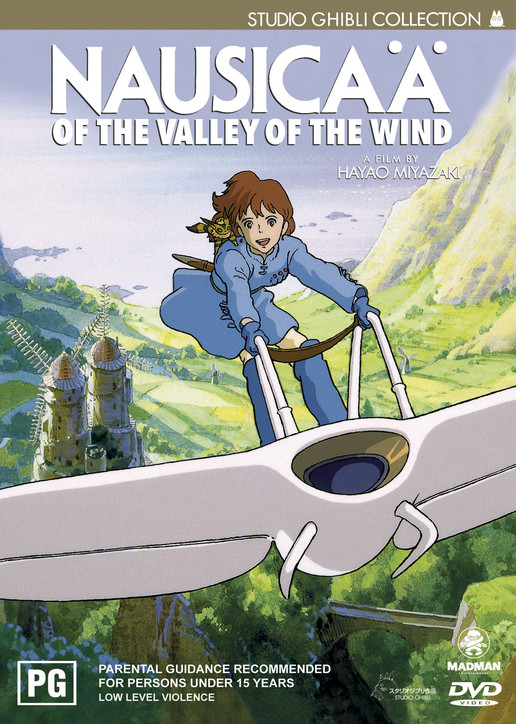
" Nausicaä of the Valley of the Wind " is a 1984 Japanese anime film written and directed by Hayao Miyazaki, and is based on his 1982 manga. It was animated by Topcraft for Tokuma Shoten and Hakuhodo, and distributed by the Toei Company. Joe Hisaishi, in his first collaboration with Miyazaki, composed the score. Taking place in a future post-apocalyptic world, the film tells the story of Nausicaä (Shimamoto), the young princess of the Valley of the Wind. She becomes embroiled in a struggle with Tolmekia, a kingdom that tries to use an ancient weapon to eradicate a jungle full of mutant giant insects.
Nausicaä of the Valley of the Wind was released in Japan on 11 March 1984. A heavily-edited adaptation of the film created by Manson International, Warriors of the Wind, was released in the United States and other markets throughout the mid-to-late 1980s. The Manson cut was derided by Miyazaki and eventually replaced in circulation by an uncut, redubbed version produced by Walt Disney Pictures in 2005. Though it was made before Studio Ghibli was founded, it is often considered a Ghibli work, and was released as part of the Studio Ghibli Collection DVD and Blu-ray range.
[video width="640" height="360" mp4="https://www.easypianoonline.com/wp-content/uploads/2021/05/Nausicaa-OpeningTheme.mp4"]

[xyz-ihs snippet="NavigationLinksBlock-Common"]
A Town With An Ocean View
by Joe Hisaishi
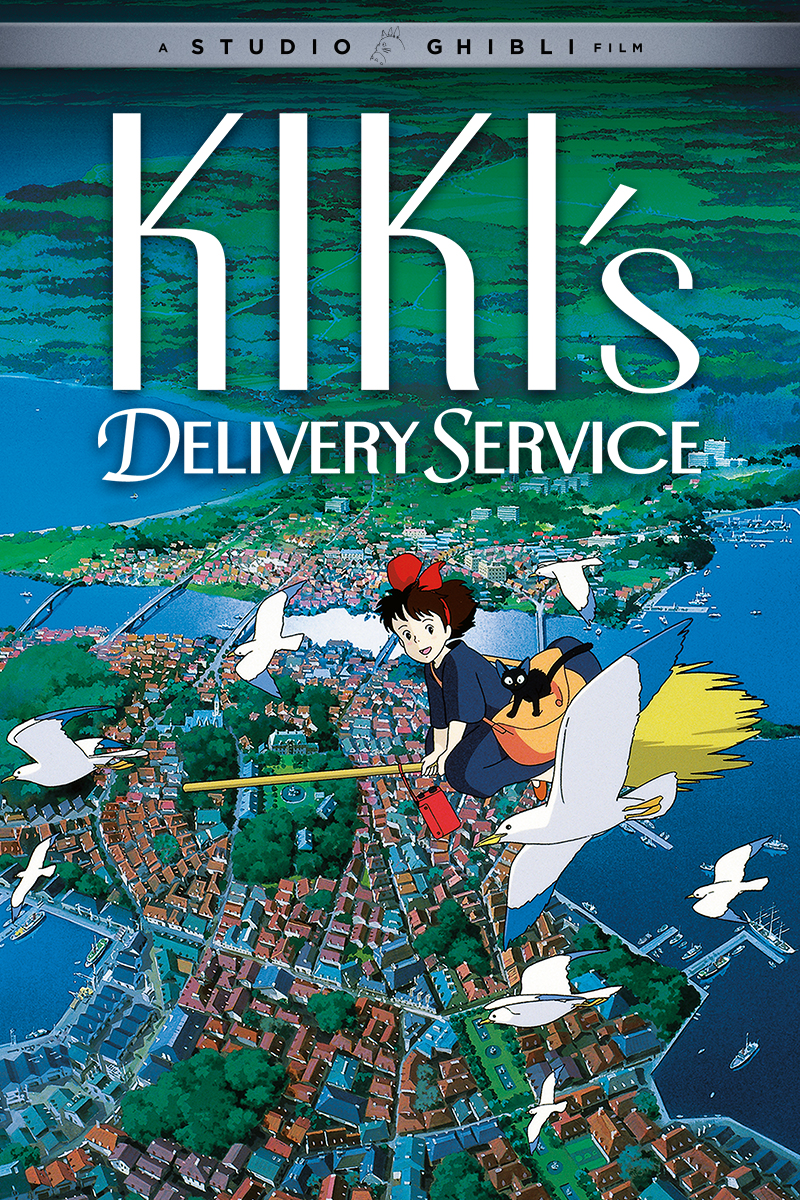
" A Town With An Ocean View " is a soundtrack from the animated film Kiki's Delivery Service. Kiki's Delivery Service is a 1989 Japanese animated film written, produced, and directed by Hayao Miyazaki, adapted from the 1985 novel by Eiko Kadono. It was animated by Studio Ghibli for Tokuma Shoten, Yamato Transport and the Nippon Television Network and distributed by the Toei Company. The film tells the story of a young witch, Kiki, who moves to a new town and uses her flying ability to earn a living. According to Miyazaki, the movie portrays the gulf between independence and reliance in teenage Japanese girls.
Kiki's Delivery Service was released in Japan on July 29, 1989, and won the Animage Anime Grand Prix prize. It was the first film released under a 15-year distribution partnership between The Walt Disney Company and Studio Ghibli. Walt Disney Pictures produced an English dub in 1997, which premiered in United States theaters at the Seattle International Film Festival on May 23, 1998.
[video width="640" height="360" mp4="https://www.easypianoonline.com/wp-content/uploads/2021/05/ATownWithAnOceanView.mp4"]

[xyz-ihs snippet="NavigationLinksBlock-Common"]
Carrying You (Castle In The Sky)
(Easy Version)
by Joe Hisaishi
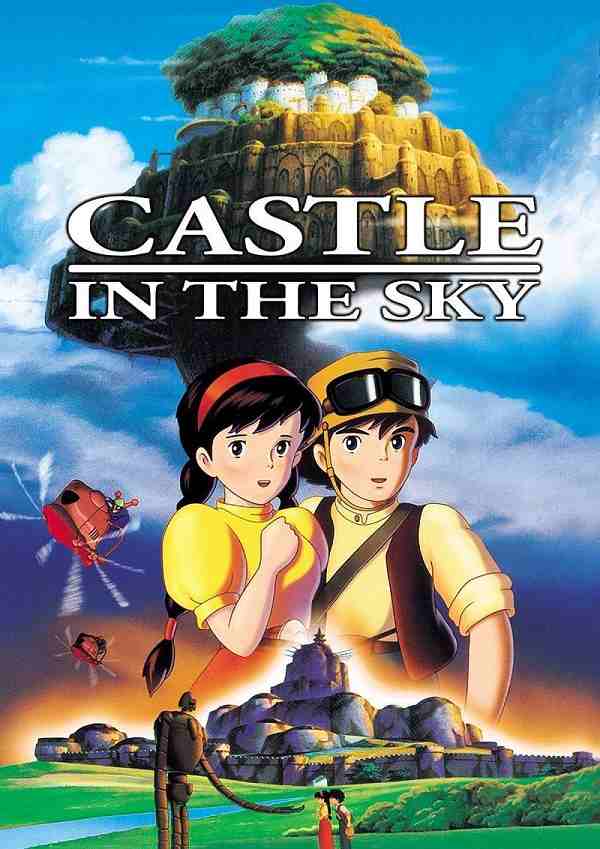
Advanced version of the tutorial can be reached at the link below:

" Carrying You " is a song from the animated film Laputa: Castle In The Sky. Laputa: Castle in the Sky known as simply Castle in the Sky in North America, is a 1986 Japanese animated fantasy adventure film written and directed by Hayao Miyazaki. It was the first film produced by Studio Ghibli and was produced for Tokuma Shoten. It follows the adventures of a young boy and girl in the late 19th century attempting to keep a magic crystal from a group of military agents, while searching for a legendary floating castle. The film was distributed by Toei Company. Laputa: Castle in the Sky won the Animage Anime Grand Prix in 1986.
[video width="640" height="360" mp4="https://www.easypianoonline.com/wp-content/uploads/2021/05/CarryingYou-easy.mp4"]
Lyrics
Carrying You
(English - Translation)
you must be hiding somewhere.
When I see those twinkling stars
I feel nostalgic because
I know you are in one of them.
Let's set out,
pack a bag with
a piece of bread,
a knife, a lamp,
The passion that my father left me,
That look that my mother gave me.
The earth is spinning, concealing you
Your eyes are shining in the glittering light
The earth is spinning, carrying you
carrying us who shall meet someday.
This passion is that my father gave me,
That look my mother gave me.
The earth is spinning, concealing you
Your eyes are shining in the glittering light
The earth is spinning, carrying you,
carrying us who shall meet someday.
Kimi o Nosete
(Japanese – Original)
Ano chiheisen / Kagayaku no wa
Doko ka ni kimi wo / Kakushite iru kara
Takusan no hi ga / Natsukashii no wa
Ano doreka hitotsu ni
Kimi ga iru kara
Saa, dekakeyou!
Hitokire no PAN
NAIFU, RANPU kaban ni
Tsumekonde
Tousan ga nokoshita / Atsui omoi
Kaasan ga kureta / Ano manazashi
Chikyuu wa mawaru / Kimi o kakushite
Kagayaku hitomi / Kirameku tomoshibi
Chikyuu wa mawaru / Kimi o nosete
Itsuka kitto deau / Bokura o nosete
Toosan ga nokoshita / Atsui omoi
Kaasan ga kureta / Ano manazashi
Chikyuu wa mawaru / Kimi o kakushite
Kagayaku hitomi / Kirameku tomoshibi
Chikyuu wa mawaru / Kimi o nosete
Itsuka kitto deau / Bokura o nosete
Songwriters: Joe Hisaishi

[xyz-ihs snippet="NavigationLinksBlock-Common"]
Superstition
by Stevie Wonder
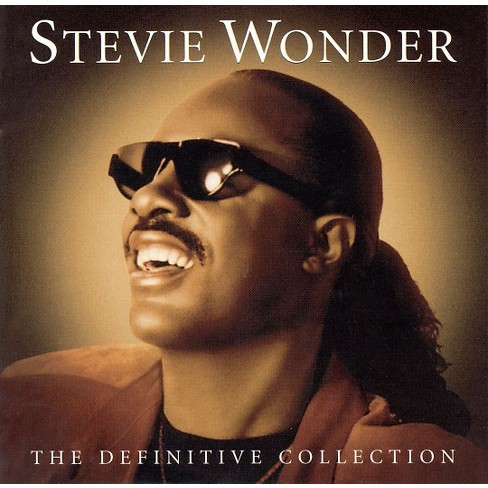
" Superstition "is a song by American singer-songwriter Stevie Wonder. It was released on October 24, 1972, as the lead single from his fifteenth studio album, Talking Book (1972), by Tamla. The lyrics describe popular superstitions and their negative effects.
"Superstition" reached number one in the U.S. Billboard Hot 100 and on the soul singles chart. It was Wonder's first number-one single since "Fingertips, Pt. 2" in 1963. It peaked at number eleven in the UK Singles Chart in February 1973. In November 2004, Rolling Stone ranked the song number 74 on their list of the 500 Greatest Songs of All Time.
[video width="640" height="360" mp4="https://www.easypianoonline.com/wp-content/uploads/2021/05/Superstition.mp4"]
Lyrics
Superstition
Very superstitious,
Writing's on the wall,
Very superstitious,
Ladders bout' to fall,
Thirteen month old baby,
Broke the lookin' glass
Seven years of bad luck,
The good things in your past
When you believe in things
That you don't understand,
Then you suffer,
Superstition aint the way
Hey
Very superstitious,
Wash your face and hands,
Rid me of the problem,
Do all that you can,
Keep me in a daydream,
Keep me goin' strong,
You don't wanna save me,
Sad is the soul
When you believe in things
That you don't understand,
Then you suffer,
Superstition ain't the way,
Yeh, yeh
Very superstitious,
Nothin' more to say,
Very superstitious,
The devil's on his way,
Thirteen month old baby,
Broke the lookin' glass,
Seven years of bad luck,
Good things in your past
When you believe in things
That you don't understand,
Then you suffer,
Superstition ain't the way,
No, no, no
Songwriters: Stevie Wonder

[xyz-ihs snippet="NavigationLinksBlock-Common"]
Prima Donna
by Andrew Lloyd Webber
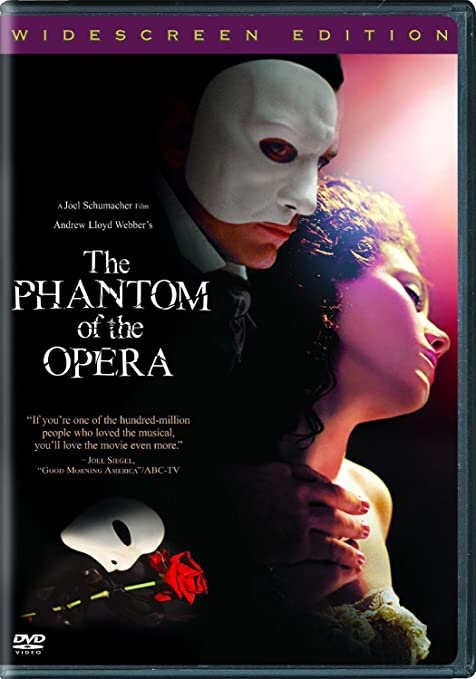
" Prima Donna " is a song from the 1986 musical The Phantom Of The Opera with music by Andrew Lloyd Webber, lyrics by Charles Hart, and a libretto by Lloyd Webber and Richard Stilgoe. Based on the 1910 French novel of the same name by Gaston Leroux, its central plot revolves around a beautiful soprano, Christine Daaé, who becomes the obsession of a mysterious, masked musical genius living in the subterranean labyrinth beneath the Paris Opéra House.
The musical opened in London's West End in 1986, and on Broadway in 1988. It won the 1986 Olivier Award and the 1988 Tony Award for Best Musical, and Michael Crawford (in the title role) won the Olivier and Tony Awards for Best Actor in a Musical. It is currently the longest running show in Broadway history, and celebrated its 10,000th Broadway performance on 11 February 2012, the first production ever to do so.
[video width="640" height="360" mp4="https://www.easypianoonline.com/wp-content/uploads/2021/05/PrimaDonna.mp4"]
Lyrics
Prima Donna
Your devotees are on their knees to implore you
Can you bow out when they're shouting your name?
Think of how they all adore you
Prima Donna, enchant us once again
Think of your muse and of the queues 'round the theatre!
Can you deny us the triumph in store?
Sing, Prima Donna, once more (Christine spoke of an angel)
Prima Donna, your song shall live again
(Think of your public) you took a snub
But there's a public who needs you
Those who hear your voice liken you to an angel
Think of the cry of undying support (we get our opera)
Follow where the limelight leads you (she gets her limelight)
Leading ladies are a trial
Prima Donna, your song shall never die (when she sings we see heaven)
You'll sing again (orders, warning)
(Lunatic demands are regular occurrences)
Think how you'll shine in that final encore (surely there'll be further scenes)
Sing, Prima Donna, once more (worse than this)
(I must see these demands are rejected!)
Who'd believe a diva happy to relieve
A chorus girl whose gone and slept with the patron?
Raoul and the soubrette entwined in love's duet
Although he may demur he must have been with her
You'd never get away with all this in a play
But if it's loudly sung and in a foreign tongue
It's just the sort of story, audiences adore
In fact, a perfect opera (for if his curse is on this opera)
Prima Donna, the world is at your feet
A nation waits, and how it hates to be cheated!
Light up the stage with that age-old rapport
Sing, Prima Donna
Once more!
Songwriters: Andrew Lloyd Webber / Richard Henry Zachary S. Stilgoe / Charles A. Hart







































